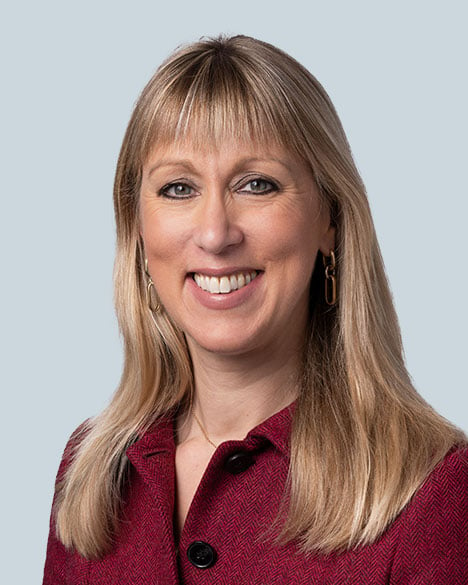
Zoë Newman, managing director in the Forensic Investigations and Intelligence practice and co-head of the Global Financial Investigations practice discusses the biggest corruption risk facing companies and why technological development will be a serious challenge in the near future with Financial Reporter.
FR: What does your role as managing director at Kroll involve?
ZN: As a managing director at Kroll, I co-head the Global Financial Investigations practice. I oversee complex, cross-border forensic investigations into a wide and diverse range of cases. One day could involve investigating a multi-million dollar, cross-jurisdiction asset recovery operation, the next investigating allegations of corruption in the Middle East on behalf of a multi-national corporate, and another might be spent advising national banks in emerging and frontier markets across Eastern Europe and APAC on the investigation and detection of money laundering. Our ‘normal’ tends to be most of our clients’ abnormal, so much of our role involves advising on the most efficient and practical way to solve their biggest problems.
FR: How has the investigative landscape changed since you joined Kroll in 2000?
ZN: This is a tough question as the investigative landscape has changed on so many levels. Overall, I would say there are four main areas:
- The Types of Cases
Whilst corporate fraud has always been at the heart of our work at Kroll, it’s hard to believe that back when I joined Kroll many companies had never heard of the FCPA and the UK Bribery Act, and the investigation of corruption was infrequent. Now firms proactively investigate, and an ever-increasing trend in our work is the switch from the reactive to the proactive in terms of conducting fraud, bribery and corruption risk assessments on behalf of multinational corporates. Similarly, money laundering was something you associated with petty criminal gangs and not multinational corporate and governmental investigations, however, regulation has turned this on its head, and now money laundering underpins the majority of the matters we are involved in. - The Way We Investigate
It’s all about data nowadays, and how to analyse vast data sets in a cost efficient yet effective manner. Data analytics is fundamental to pretty much every investigation in some form, enabling us to mine financial records and spot patterns and irregularities in hours, instead of weeks. - The Stakeholders We Interact With
The empowerment of the compliance function and internal audit is the biggest change I’ve seen in the last 20 years. Historically, our typical client was the general counsel or CFO, now it’s more the compliance and internal audit teams leading an investigation from the client side. Similarly, the nature of our clients and relevant stakeholders has evolved way beyond corporates, and now encompasses central banks and other regulators, as well as the international donor community including the World Bank and IMF. - The Way Fraud and Corruption is Facilitated
The investigative landscape has become much more intricate, mainly due to stricter regulations and resulting adaptation by wrongdoers. As the rules get tighter, people and organisations wanting to launder money, for example, are finding ever-more sophisticated ways to avoid detection.
Additionally, the ability to move millions of dollars around the world at the click of a button has resulted in the massive increase in jurisdictional scope of the matters we investigate. As such, the ability to work fluidly across borders is critical to all our investigations—whether it’s the investigation itself or asset recovery.
"In the short term, the Covid-19 pandemic has undoubtedly created challenges for businesses and regulators."
FR: What is the biggest corruption risk facing companies, and how can they tackle it?
ZN: In the globalised modern business world, companies face significant risks when dealing with cross-border transactions in high-risk countries. Some nations have very strictly enforced regulations, but others take a more relaxed approach, and it’s in these places that opportunities for wrongdoing appear. One of the biggest risks for corporates is that as compliance has become smarter, so have the wrongdoers. They know what a red flag is, and therefore find sophisticated methods to disguise wrongful payments—from building up slush funds in known and trusted suppliers through over or empty invoicing to excessive discounting. An increasing risk we have identified in recent years relates to facilitators of financial crime; that is, intermediaries who offer professional services to support criminal enterprises, but are not overtly seen to be high-risk per se.
The only way a company can safely ensure it’s protected against bribery and corruption is by doing its homework—undertaking in-depth due diligence protocols, proactively monitoring financial data for red flags and by instilling a culture of accountability which encourages reporting of wrongdoing.
FR: How important is the role of advisory firms in making sure companies are prepared to face the risks of modern business?
ZN: In any business, it’s easy to become inward-looking which makes you blind to some risks. Advisory firms can look at a case from a different perspective and have access to the full suite of skills needed to investigate. We can take the investigation off the business leaders’ hands, feeding them key findings to make decisions quickly and on an informed basis, whilst enabling them to continue with their day job. When time-poor internal teams attempt to cover all bases, it can result in errors and missed opportunities, whereas advisory firms can focus all of their attention on building a holistic picture of the risks posed to a firm, and how they can tackle them or alternatively provide complementary specialist skills to internal investigation teams.
FR: What do you think the main challenge will be in the next five years?
ZN: In the short term, the Covid-19 pandemic has undoubtedly created challenges for businesses and regulators. With significant state investment all over the world, money flows and compliance processes will perhaps be under less scrutiny than usual. Doors are open for wrongdoing, so businesses need to take extra care when conducting due diligence. Regulators need to make sure that they don’t lose sight of longer-term issues which, as shown by the 2008 financial crash, can arise when focus is too narrowly placed on the short-term and without the appropriate controls and cross checks in place.
Looking beyond 2020, I think the pace of change in technological development will be a serious challenge, particularly given how reliant businesses are on tech. How we harness technology such as AI will prove to be a great challenge for businesses globally.
Some companies are keeping pace with radical innovations, and consequently staying competitive much more effectively than others. Out-of-date infrastructure may seem unimportant to some, but it has far-reaching knock-on effects which impact many different business areas. A business’ ability to acquire and retain staff can be affected by this, as can its capacity to keep up with regulatory scrutiny and deal with the grey areas thrown up by new technologies like cryptocurrency.
This article first appeared on Financial Reporter, May, 1, 2020.
Stay Ahead with Kroll
Forensic Investigations and Monitorships
The Kroll Investigations, Diligence and Compliance team consists of experts in forensic investigations and intelligence, delivering actionable data and insights that help clients worldwide make critical decisions and mitigate risk.
